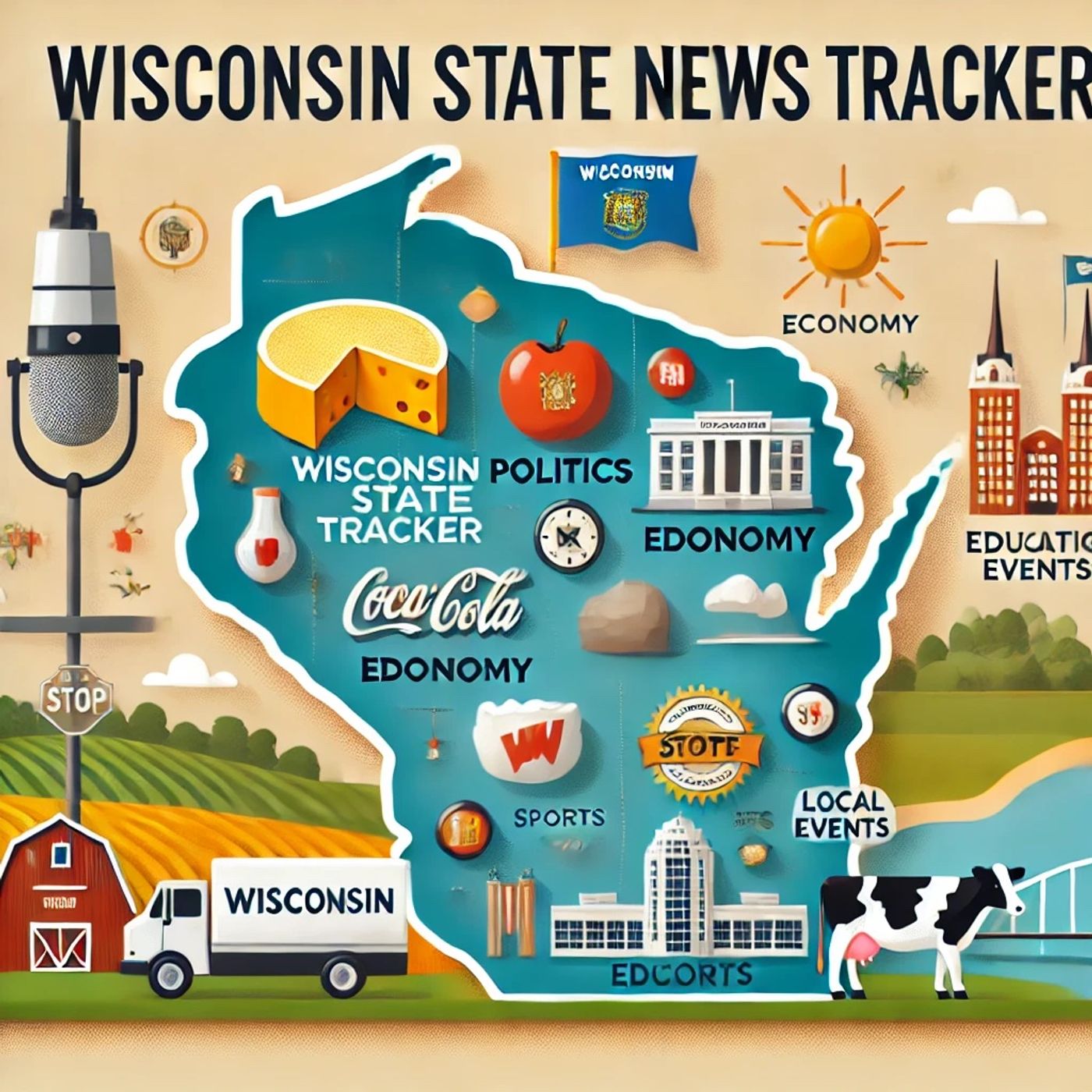Jan 28 2025 3 mins
Wisconsin is poised for a year of significant transitions in 2025, with developments spanning government, economy, community, and environmental sectors.
Governor Tony Evers recently delivered his 2025 State of the State address, highlighting key policy priorities for the year. These include plans to lower everyday costs for working families, reduce crime and prevent gun violence, and invest in the health and well-being of children while improving classroom outcomes[1]. Notably, Evers emphasized the state's success in cutting taxes, with Wisconsin's state and local tax burden dropping to a record low in 2024, according to a Wisconsin Policy Forum report.
In the legislature, several bills have been introduced, including measures to expand veterans benefits, require local approval for certain wind and solar projects, and create agreements for direct primary care[2]. These bills reflect ongoing efforts to address various state issues, from energy policy to healthcare access.
On the economic front, Wisconsin is expected to see modest growth in 2025, with personal income projected to rise by 4.6% nominally and 2.5% in real terms after adjusting for inflation. However, GDP growth is expected to slow to 1.6%, and employment growth is forecasted at just 0.4%, with 82,867 new jobs created between 2023 and 2025[3]. Key sectors such as education and health services, leisure and hospitality, and manufacturing and trade are set to undergo significant changes.
In community news, education remains a critical focus, with Governor Evers announcing a budget proposal to invest nearly $300 million in comprehensive mental health services in schools statewide. This includes support for peer-to-peer suicide prevention programs and expanded mental health training[1].
Environmental trends indicate that Wisconsin is likely to become a much warmer state over the next few decades, with average temperatures more like those currently experienced in states hundreds of miles to the south. Climate projections suggest significant changes in temperatures and precipitation patterns[4].
Looking Ahead:
- Governor Evers will announce his full 2025-27 Executive Budget proposal on February 18, 2025, detailing key policy initiatives and budget allocations.
- The Wisconsin legislature will continue to debate and vote on various bills, including those related to energy policy, healthcare, and veterans benefits.
- Economic indicators will be closely watched as the state navigates modest growth and significant sectoral changes.
- Environmental developments, particularly climate change projections, will remain a critical focus for state policymakers and residents alike.
Governor Tony Evers recently delivered his 2025 State of the State address, highlighting key policy priorities for the year. These include plans to lower everyday costs for working families, reduce crime and prevent gun violence, and invest in the health and well-being of children while improving classroom outcomes[1]. Notably, Evers emphasized the state's success in cutting taxes, with Wisconsin's state and local tax burden dropping to a record low in 2024, according to a Wisconsin Policy Forum report.
In the legislature, several bills have been introduced, including measures to expand veterans benefits, require local approval for certain wind and solar projects, and create agreements for direct primary care[2]. These bills reflect ongoing efforts to address various state issues, from energy policy to healthcare access.
On the economic front, Wisconsin is expected to see modest growth in 2025, with personal income projected to rise by 4.6% nominally and 2.5% in real terms after adjusting for inflation. However, GDP growth is expected to slow to 1.6%, and employment growth is forecasted at just 0.4%, with 82,867 new jobs created between 2023 and 2025[3]. Key sectors such as education and health services, leisure and hospitality, and manufacturing and trade are set to undergo significant changes.
In community news, education remains a critical focus, with Governor Evers announcing a budget proposal to invest nearly $300 million in comprehensive mental health services in schools statewide. This includes support for peer-to-peer suicide prevention programs and expanded mental health training[1].
Environmental trends indicate that Wisconsin is likely to become a much warmer state over the next few decades, with average temperatures more like those currently experienced in states hundreds of miles to the south. Climate projections suggest significant changes in temperatures and precipitation patterns[4].
Looking Ahead:
- Governor Evers will announce his full 2025-27 Executive Budget proposal on February 18, 2025, detailing key policy initiatives and budget allocations.
- The Wisconsin legislature will continue to debate and vote on various bills, including those related to energy policy, healthcare, and veterans benefits.
- Economic indicators will be closely watched as the state navigates modest growth and significant sectoral changes.
- Environmental developments, particularly climate change projections, will remain a critical focus for state policymakers and residents alike.
